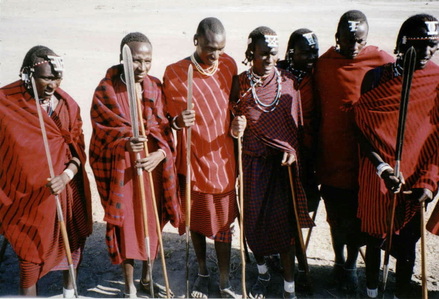African Savanna- Serengeti Plains
Human Impact

Positive Human impact comes in the form of money from tourism. A percentage of the money brought in goes to the tour guides who are native Africans, and this money goes to improving their livelihood. This improved livelihood allows for them to be more willing to maintain the Serengeti as a conservation area, and make the native people less likely to turn to poaching. The Serengeti and surrounding areas are home to the Maasai people, who are pastoralists, for the past few hundred years.
Negative Human impact would be the taming of the native animal species from over exposure to humans, and the slight destruction of the environmental area by the jeeps on their treks. Lion hunting, especially was especially popular during the 1900s because the big cats were classified as vermin and could be shot at will. Beginning in the 1920s, the government began passing a series of laws which protected more and more of the Serengeti. Eventually, the government declared the area a National Park on June 1st, 1951, which protected the wildlife but brought a conflict of interest with the now residing Maasai. But now, the Serengeti National Park has worked to cooperate to create the Ngorongoro Conservation Area, which took into account Sustainable Development initiatives.
However, poaching today is still a big problem. The locals living in the park illegally kill about 40,000 animals a year, catch animals in snares, or in pit fall traps. This conflict, of course, is a manifestation of the antagonism between the impoverished villagers and authorities of the Serengeti. IT is recognized as a source of most of the problems, especially recently. The initiative is to cooperate and harmonize the existence of the pastoralists with the wildlife, and the issue can be resolved if the locals earn revenue from tourism of their home. In a more recent effort, Wildlife Management Areas, which are locally administered game reserves, have been created in the peripheries of the park to allow the locals to hunt.
